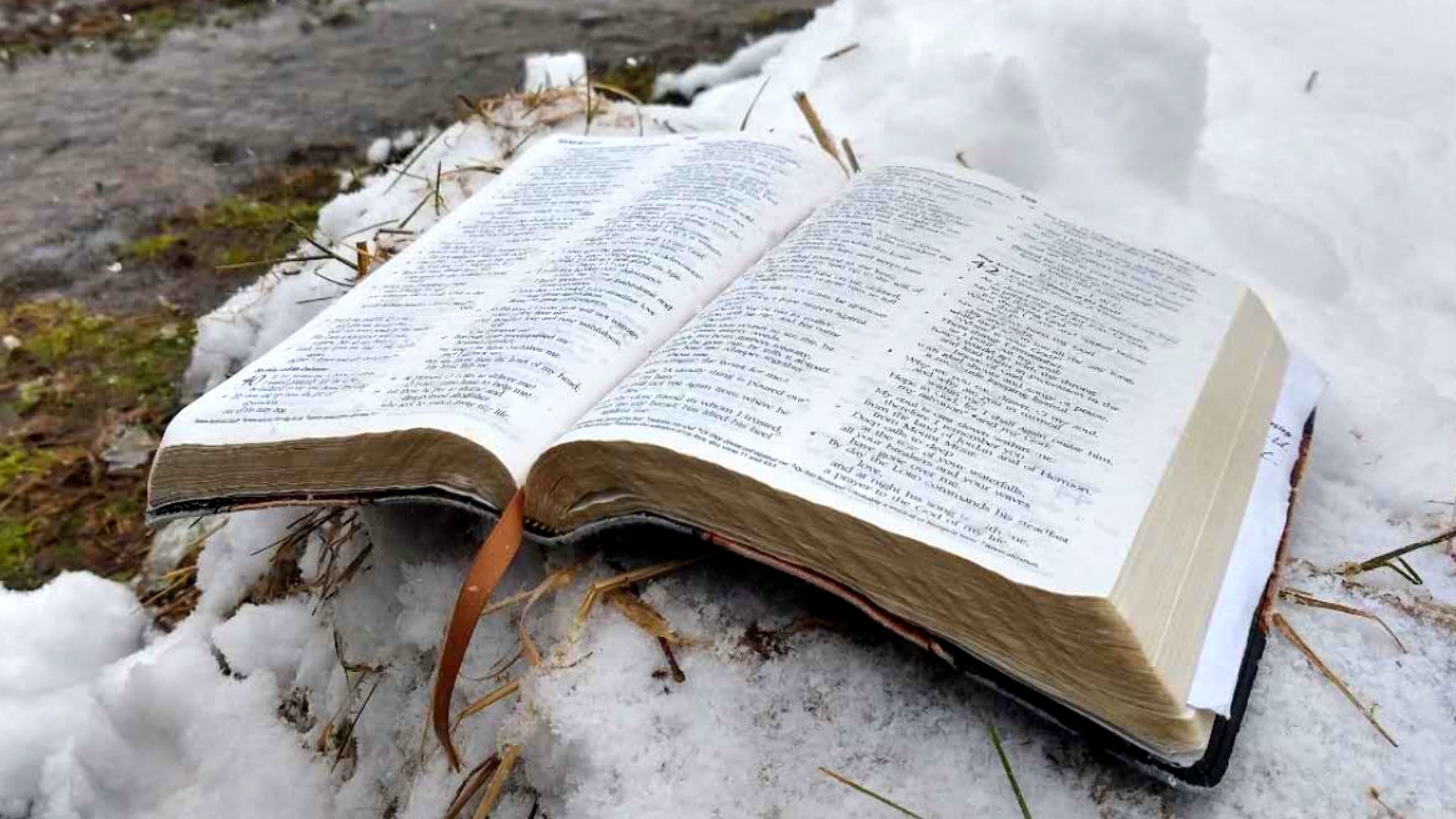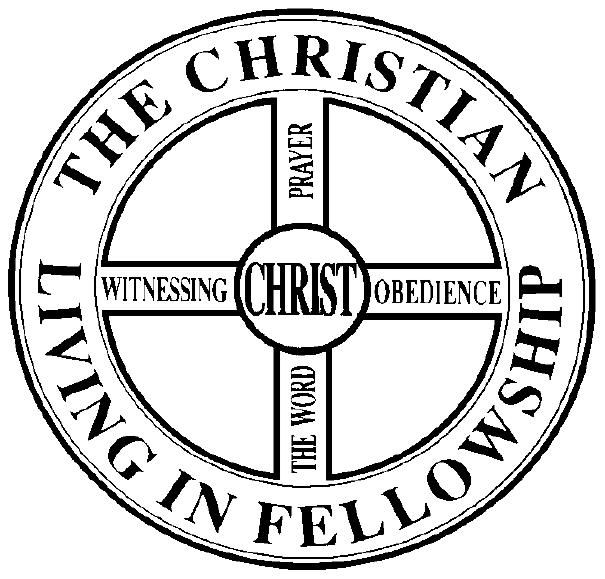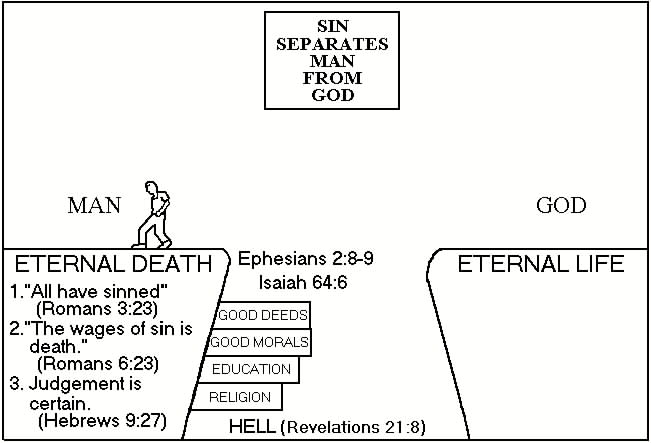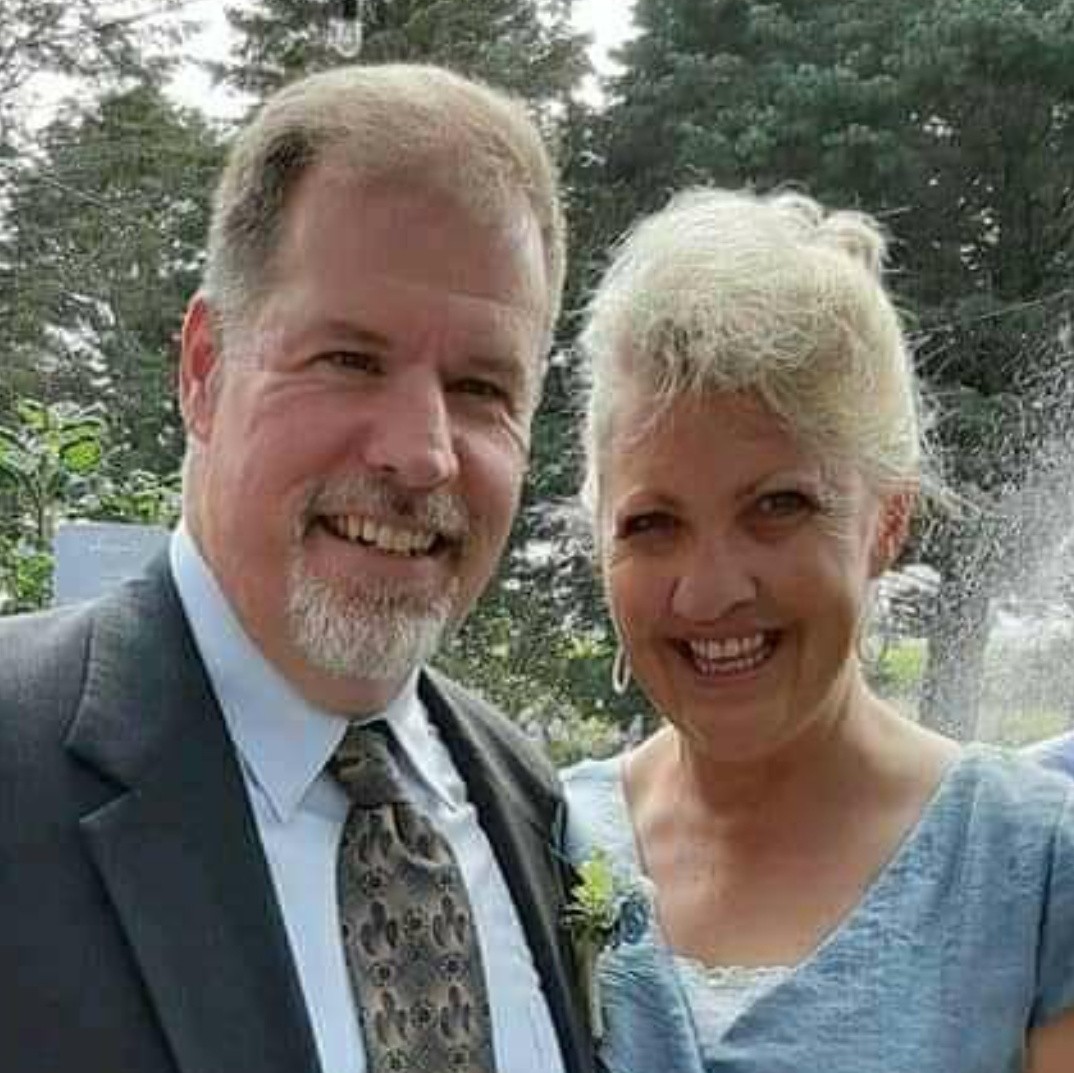
The Gospel: The Bad News
I often ask my discipleship students why they think God left us on earth once our salvation was settled. Why couldn't we be caught up to Heaven as soon as we trusted in Christ? Why do we have to keep slogging through this sin-damaged world?

The answer is obvious, isn't it? Well, not always to a brand-new Christian. The amazing answer is that God has chosen to work through us to carry the message of reconciliation with God to this lost world (2 Corinthians 5:18-21). He converts the soul, but we must carry the message! That's the point of the Witnessing spoke in our Wheel Illustration of a growing Christian life. The two ways we can act as a witness to the truth of Jesus Christ is by our personal testimony of what He did for us, which I talked about in my last post, but also by a clear and focused explanation of who Jesus Christ is and what He has done for all mankind—the Gospel.
Paul distills that Gospel down to its most basic content in 1 Corinthians 15:3-5 (ESV):
For I delivered to you as of first importance what I also received: that Christ died for our sins in accordance with the Scriptures, that he was buried, that he was raised on the third day in accordance with the Scriptures, and that he appeared to Cephas, then to the twelve.
Some Context
Paul makes clear from 1 Corinthians 15:1-2 that this nutshell of the Gospel is all that is required to believe for salvation. I've never tried it before, but I doubt that anyone lacking sufficient background in Christianity would be able to make sense of the few verses above such that they could be saved. They are the heart, the essential part of any Gospel presentation, that one must believe in order to be saved. But are they enough to prepare a person to receive the intended salvation? Most people require a bit of context before they understand the full import and significance of 1 Corinthians 15:3-5. Jesus' death for our sins, burial (as proof of His death), resurrection and post-resurrection appearances (as proof of His resurrection)—all in accordance with the Scriptures given beforehand—this is the Good News by which all men can be saved, and the only way anyone can be saved!
But most people won't appreciate this Good News without the clarification of and agreement with some Bad News first. By the same token, it is also not enough merely to share the facts of Christ's death and resurrection for our salvation: The hearer needs to make some kind of Response. Jesus likened His preaching of the Kingdom to fishing when He called his first disciples (Matthew 4:19), so I was taught to conclude a Gospel explanation with a series of questions called "drawing the net." These questions are intended to help a hearer understand the decision he faces and to make it, one way or the other.
Putting It Together
Dawson Trotman, founder of the Navigators, trained all his disciples in the use of a series of verses to explain the whole Gospel with sufficient context to help another person understand their need for Christ. Discipled by Daws, Roy Robertson carried those verses with him to China where he was to develop a follow-up system for the thousands of Chinese who had come to Christ through Youth for Christ crusades shortly before the Communists took over that country. While there, Roy came across a painting that Dick Hillis and his Chinese gospel teams used in their open-air preaching. Roy took that picture, combined it with the sequence of verses Daws had taught him and developed a tool we today call the Bridge Illustration.

The picture above is the first phase of the Bridge Illustration, depicting the elements of the Bad News we cover:
- God and Man: The Bible doesn't attempt to prove the existence of God, neither do we. Ultimately this is the job of the Holy Spirit, to convict of sin, righteousness and judgment (John 16:7-11); our job is simply to explain the message of reconciliation. But we can begin the Bridge Illustration all the way back in Genesis 1 and 2, if we like, and describe how God made Man to fellowship with Him. But...
- Separated by Sin (Isaiah 59:2, Romans 3:23): When Adam sinned, all his descendants were cut off from God and inherited his sin nature. All of us have likewise earned separation from God by our own sin, which in its most basic form is merely disobedience to God, whether we know what He requires or not. Indeed, if we're not even willing to find out what He requires, that too is sin!
- Death as the Penalty of Sin (Romans 6:23): Death entered the world through Adam's sin. God provided the means for Adam and his descendants to live forever, but when Adam sinned, he was cut off from the Tree of Life, and his eventual physical death was assured. Descended from Adam, we too are cut off from the presence of God and cut off from the possibility of living forever. Today we have yet to find a remedy for death; we will all die in the likeness of Adam, because we have all sinned in his likeness.
- Judgment following Death (Hebrews 9:27): God will judge all mankind; in fact, He has appointed a Man like us to carry out His judgment. Those who die while still bearing their sin will but cut off forever from God in a place called...
- Hell as final condemnation for Sin (2 Thessalonians 1:7-10; Revelation 21:8): There is no second chance, no escape from Hell. It is eternal torment, shut out forever from the presence of God.
- Four failed "bridges" men attempt to use to cross over to God (Isaiah 64:6; Ephesians 2:8-9; Titus 3:5):
- Good Deeds: Good deeds cannot cover over our sin; they cannot blot out our sin. If we attempt to close the gap between us and God by our good deeds, we merely carry our sins closer to Him. But God in His perfect righteousness and holiness cannot allow sin to approach Him; He will not allow us nearer to Him as long as we carry our sin. He maintains His distance, no matter how many good deeds we do.
- Good Morals: If God were to judge us by our own moral standards, He would find our own consciences convicting us of sin. There is not one of us who can stand before even our own moral standards and declare ourselves perfectly righteous. And God's standards are absolute perfection—His very nature: If our own standards condemn us, we have no hope of surviving the scrutiny of His. Yet our own or His moral standards can help us become aware of our fundamental problem—Sin—and make us aware of our need to find a solution.
- Education: Many blame a lack of education for the poor state of our moral rightness. They suggest that greater education is sufficient for changing the ways and heart of man. But the truth is that even more education cannot wipe away sin. Do not many use that very education to find new ways to sin? Education has benefit only in that it too can show us more of the ways we do sin.
- Religion: I personally like the Chinese word for Religion, which basically means "ancestral teachings." In other words, religion is just a specialized form of education, which teaches us about the spiritual realm, about gods and spirits, and the kinds of morals and deeds that hopefully will gain us favor with them. But if that is all religion is, then we're in deep trouble. We already know education, good morals and good deeds will get us nowhere with the God who created all things! It's benefit is that like education and good morals, it can make us more aware of the ways we fall into sin.
The Bad News is summed up in our utter helplessness and the hopelessness of our attempts to save ourselves from the eternal consequence of our sin. The solution to our problem is not new or better religions, or self-improvement programs, or a greater discipline in carrying out higher moral standards. The solution is right in front of us: The penalty for sin is death! And like any other court God has revealed through the Jewish Scriptures, our Old Testament, that He will accept a substitute in our place to pay our penalty—as long as that substitute is totally without his own sin! If only there was such a person!
God didn't create us in order to send us all to Hell. He knew before the foundation of the world that all of us would fall into sin and that in His righteousness He would be compelled to cut us off from His presence—in order to provide a way to redeem us back to Himself. From the very beginning, God had a plan....
Resources
- The Bridge Illustration - A clear and complete explanation of the only way man can be reconciled with God
- Prayer Pages - A tool to help keep track of and manage prayer needs.
- Personal Reading Record - A tool to help you keep track of where you've read and where to read next
- Bible Reading Highlights Record - A tool to help you record your thoughts and applications when you read the Word
- The Timothy Training Workbook - A printable (front & back) discipleship notebook written by veteran Navigator missionary and founder of Training Evangelistic Leadership, Roy Robertson
Courtesy of Roy Robertson and Training Evangelistic Leadership

